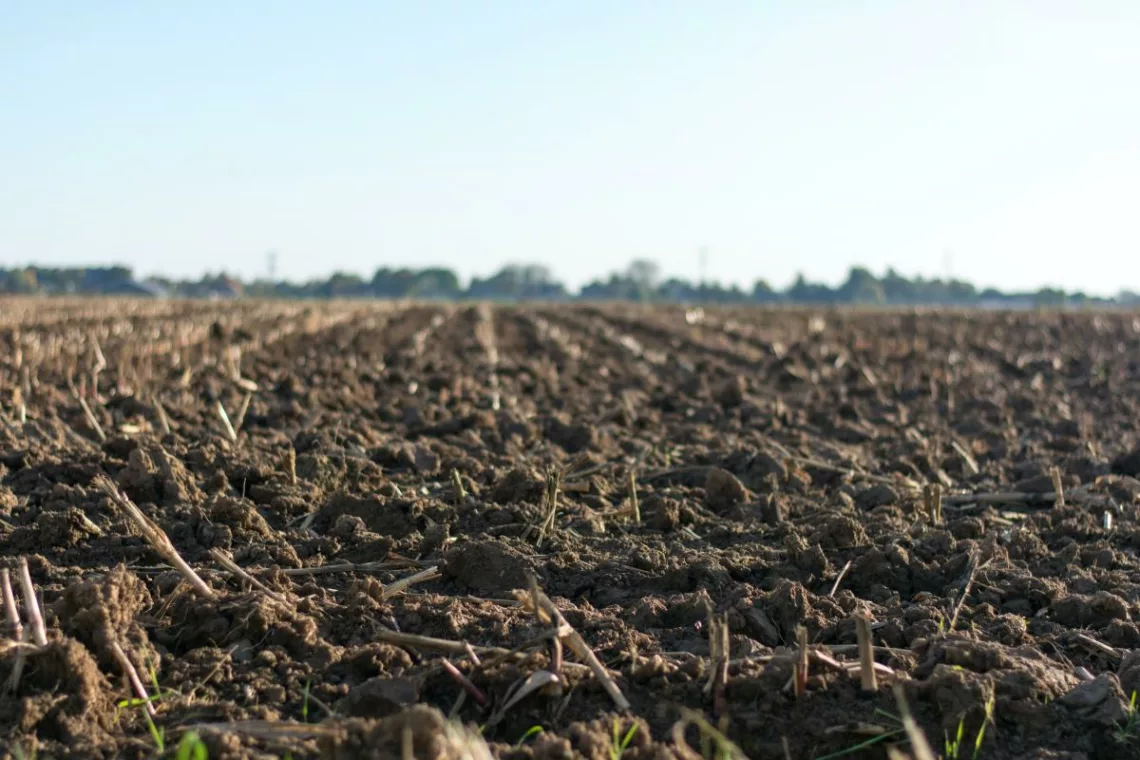The effect of climate change on soil health and fertility has given rise to new challenges for stakeholders in the agricultural sector as they brace up efforts to enhancing food security for Nigeria.
On the flip side, most of these challenges which range from degradation, soil salinity and unhealthy practices which deplete soil nutrients are inadequately known to peasant farmers who constitute the largest proportion of crop and livestock producers in the country.
This knowledge gap, no doubt has over the years lead to unhealthy farming practices, resulting in dwindling soil fertility and low crop productivity.
The significance of soil test in pari passu to all efforts towards achieving food security for Nigeria cannot be over emphasised as farmers stand to gain more through the determination of the soil’s nutrient level and pH content which is essential because fertile soils are necessary to grow healthy and high yielding crops.
Experts believe that soil test will help farmers determine whether fertiliser is needed less or more for a particular area of farming which will assist them in minimisation of fertiliser expenditure and zero wastage of farm inputs as this remain imperative to boost food production.
It is against this backdrop that 42 years after the establishment of soil testing laboratories in Kaduna, Ibadan and Umudike, the federal government last year commissioned another soil testing laboratory and Geographic Information System (GIS) in Abuja.
According to the minister of agriculture and rural development, Dr Mohammed Mahmood Abubakar, the federal government have identified gaps in the way Nigerians farmers manage soils which is affecting fertilizer usage and land use planning in the country.
He said that the ministry was determined to bridge the gaps which was why the fourth national soil laboratory was established in Abuja.
During the commissioning, the minister noted that the federal government remain committed to an agriculture led diversification of the nation’s economy and for the sector to play the expected role towards achieving this objective, the soil resources on which agriculture depends must also receive special attention for sustainable agricultural production.
He said, “This is another bold step towards sustainable production of food using modern technology by paying attention to the health of our soils, the commissioning of these GIS and Soil Testing Laboratories is highly significant in our task of ensuring food security for the nation,these laboratories are necessary for the promotion of technology-driven agriculture which is the focus of the ministry as contained in the National Agricultural Technology and Innovation Policy (NATIP).
“The laboratories we are commissioning today will further strengthen the capacity of the department in this respect, the ministry now has four national soil laboratories in Abuja, Kaduna, Ibadan and Umudike.”
According to him, each of these laboratories now has Mid-Infrared Spectrophotometer (MIR) for dry chemistry analytical procedures and the equipment has the capacity for analysing large quantities of soil samples rapidly and help expanding soil testing capacity.
While the GIS is expected to receive soil field data real-time for processing, analyses and mapping to facilitate the production of soil fertility maps for different parts of the country.
The minister expressed hope that the new GIS will provide current information on the suitability and capability of lands for the production of different crops and land use.
“The maps will provide information on crop and location specific types of fertilizer for blending by our blenders to enhance agricultural productivity and stop blind application of fertilisers in the country,” he said.
There is no gainsaying that this new project is a significant step towards delineating soil profile challenges for optimal crop productivity but how can farmers access these facilities, considering the distance between farming communities and the location of these laboratories?
In essence, bringing these facilities closer to farmers will encourage them to carry out soil test as experts had make case for the establishment of more standard laboratories in the six geopolitical zones of Nigeria.
Findings show that similarities and differences between farmers’ perception of soil quality issues and that of soil scientist are very pertinent, that educating farmers especially in the rural communities on the need to carry out soil test before planting is also pivotal to achieving the overall goals of setting up these laboratories.
To give holistic solution to burning challenges around deficient soil testing, stakeholders at a national soil survey and soil fertility mapping workshop recently agreed that synergy and collaboration must be built between universities, agricultural research institutes, colleges of agriculture and the federal ministry of agriculture and rural development especially on continue suggestions that would facilitate the implementation of the any soil management project now and in the future.
Dr Abubakar stressed that the ministry’s department of Agricultural Land and Climate Change Management Services must embark on nationwide sensitization of farmers on the importance and benefits of soil testing in crop and livestock production, because declining yield per hectare of farm land is attributed to declining soil fertility.
While hope continue to rise among Nigerians on better days for food security and sufficiency, it is imperative that the federal government match its words with actions to ensure that all developed strategies to boost food production for our growing population are followed to the later and spirit. This way, we shall return to the glory days of a viable economy build on agriculture.





